Graham Reid | | 10 min read
Jambalaya Cajun Band: C'est Fun
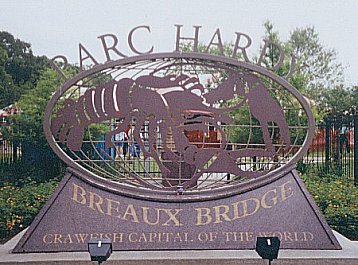
Norbert shuts off the small outboard and pulls the propeller out of the brackish water. He loosens the weeds which have fouled it and tosses them away. We sit in the silent stillness of Lake Martin beneath cypress trees and Tupelo gums, some of which are 300 years old. They have their roots in soil more than a metre below the still surface.
A crane flies low over the trees.
"Now, there's a gator over there," says Norbert quietly and points with a rugged finger towards some logs in the distance. I can't see it.
"Over there. Beyond."
And then I spot it. A small alligator, maybe the length of my forearm, lying on a log some 10 metres distance, barely visible to me. Norbert had seen it with ease. But then again, he would.
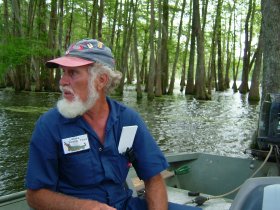
We are near historic Breaux Bridge, the crawfish capital of the world. We are sitting in his small boat on Lake Martin (pronounced "Ma-tarn" round here), just Norbert, Megan and me -- and the menacing skull of a gator with teeth six centimetres long which lies on the seat at Norbert's side. This is the kind of thing nightmares are made of, and which he used to haul out of these waters.
He passes a bottle of homemade moonshine. It is like a smooth grappa and with just enough bite to be memorable. We sit in silence as flocks of homecoming birds return to their nests at the sanctuary on the far side of the lake, their reflections in the flat, almost oily surface of the lake.
The big gators aren't around right now because of the rains, he explains. They prefer the shallow water but with the recent downpours the lake has filled -- maybe up by a metre -- and that means they have gone further into the bayou. Just snakes and turtles and crawfish and small gators and about a hundred species of birds round here right now, he says as his eyes constantly scan the waters.
We sit in the boat, gently rocking, and enjoy the quiet.
Two nights ago we crossed into Louisiana with rain lashing the windscreen in impenetrable sheets. We passed slowly through empty towns and drove on through the shiny darkness. At some point in the night we left Texas and crossed into north Louisiana and stopped at Mansfield and the first motel we could find. The Weather Channel spoke of flooding all across this western part of the state through which we must pass as we head to New Orleans.
It rained intermittently as we made our way down to the Gulf Coast, along through the shrimp and oil counties, then through the swampland on our way up to Lafayette. By then the sky had stopped crying but large puddles and small lakes had formed beside the roads and through the small towns.
When we made it to bayou country the whole landscape was afloat. Earlier today we took a random right off the highway on the way to Baton Rouge. The roads narrowed and we came in to Breaux Bridge, stopped at one of three sets of traffic lights in town then made our way down Rue Principal and across Rue Pont. The flooding has receded, although the sky remains threateningly black, so the cafes and antique shops which make up what might be called the centre of town - the traffic lights at Principal and Pont - have sandbags by their doors.
This is the heart of Cajun country. Most people here are direct descendants of the original French-speaking settlers, the Acadians, who arrived from the colony of Acadia in Nova Scotia in the late 18th century. In the town places have names like Cafe de Mes Amis, and a flattened, slow southern variant of French is frequently spoken. People are predominantly Catholic and proud of their Cajun traditions.
This small, historic town within earshot of the multi-lane highway between Lafayette and Baton Rouge is on the bayou, that eerily picturesque region where trees grow out of the endless expanse of brown, still water and are draped in Spanish moss like ancient dowagers. Folks 'round here are independent and see themselves as a people apart.
Mayor Delhomme -- hand-tooled boots on the desk, beetle-browed and with a wicked grin -- tells me he grew up thinking of outsiders as "Americans"'.
Delhomme -- whose business card has a drawing of a crawfish on it -- says the biggest problem this region faces is unemployment. There are no major industries and none have expressed interest in setting up here. And Acadians from the "oak and pecan and dark dirt country"', as he calls it, haven't traditionally been interested in education. They could live off the bayou.
"Come out here at night," Norbert had said, "and you can see hundreds of eyes looking back at you.''
Yet even boasting a population of around 7500 the town seems abandoned when we arrive. There is no reply when we knock at three or four bed and breakfast places. No one answers our calls either. It is almost ghostly, as if Breaux Bridge closes down when the rains come and visitors are unwelcome. We have an uneasy feeling and consider moving on to Baton Rouge to spend the night. But then we find the tiny but tidy visitor's centre and ask about boat tours around the bayou.
The round woman, who speaks in a voice barely above a whisper, gives me the card of Norbert LeBlanc -- "LeBlanc Swamp Tours" on one side, Norbert pictured in blue overalls and baseball cap on his boat between ancient cypress trees on the other -- and I make the call. A woman answers, she is polite and also softly spoken, the accent seducing with every soft sibilant. I explain what we'd like to do and she says she'll go get Norbert. She puts the phone down.
"Nooooooooooooorbert!" A physical pain shoots through my ear and jerk the handset away. Even at arm's length I can hear her as she calls again.
"Nooooooooooooorbert!" I cautiously put the phone back to my ear. I can imagine the scene: the screen door slamming, the bellowing into the back garden, no sign of Norbert. I think I can hear dogs barking, kids shouting -- but my ear is still ringing so I may be mistaken. She comes back and is again all demure sweetness.
Norbert isn't around right now but he'll call us back directly. And as we are walking around the tidy little shops he does. He was intending to come to town in a while, but right now he's down by the lake. Just come on down. Sure, we can go out.
We drive 10 minutes out of town to the boat ramp and he is there, in what I take to be the same blue overalls, the same baseball cap and same long rubber boots from his photograph. He is pushing his metal runabout into the cold water. We shake hands and set off across the lake, into the surrounding bayou where moss hangs from the trees in tattered veils.
The bayou -- tree-filled swamps, some now bridged by huge spans of highways, others with oil wells scattered throughout -- is a mysterious place, even by day. It once provided sanctuary for the Acadians who fled into its darkest, almost impenetrable reaches. Breaux Bridge is one of the two founding Cajun towns hereabouts and Claude Martin, who gave his name to this lake and the surrounding parish, is recognised as the first settler.
He was granted land here in 1771, six years after the first Acadians arrived. The first land purchase was in 1786 by Firmin Breaux who bought it from Solomon Malines.
The town's official founder however is a woman, the magnificently named Scholastique Picou Breaux, wife of Agricole Breaux who was Firmin's son. It was Scholastique who drew up the plans for the town. The first "Breaux bridge" was built in 1799 and was a simple walkway across the river. It snowed here once, in 1879.
Breaux Bridge is where people come for authentic Cajun food and to hear the distinctive washboard-driven music of the Cajuns. And if you want to eat the good food you should go to Mulate's on Mills Avenue, says Norbert. "You should expect to sing and dance too," he adds with a wink.
The sky now is overcast and a slate grey, the whole lake almost unnaturally motionless. As we putter slowly around the broken tree trunks form strange and disconcerting shapes which appear and disappear like drifters in a dream. Sometimes we are within mere metres of fishermen sitting silently in their small runabouts, or guys in baseball caps squatting on the duckshooting hides. Some wave slowly, others just nod in our direction, most offer no acknowledgement at all.
The place feels eerie but strangely attractive. We drift on through the trees, Norbert stopping to pick the tiniest of Spanish moss flowers no bigger than the head of nail. Like the distant gator, he had spotted it in passing. On our drive to the lake we have seen new, low-lying houses with water lapping over their doorsteps. We are confused, if people are going to build on flat land which is frequently flooded and within a spit of a bayou, why aren't their houses built on stilts or just elevated in some way?
"That's because they are smarter than the old people," he says with a cryptic smile.
"Is your house elevated?" we ask.
"Yes, but that's 'cause I ain't as smart as some of them new folks."
We are all laughing, then Norbert says he can't leave the bayou otherwise his toes dry out. He is a man born into a waterlogged life. We haul up back at the boat ramp and Norbert says we should drive round the side of the lake where the bird sanctuary is. We mention maybe going to Mulate's tonight but he eyes us up carefully then, after what seems an age, says maybe he'll see us later in Jacqueline's in town, that's where he was going when we called.
We shake hands, Cafe Jacqueline's it is then.
The bird sanctuary is an extraordinary press of bird flesh and feathers, dozens of species nesting with reach of the road on the lake side. Just metres away across the rough road they are conspicuously absent, this land here is not a sanctuary and we can see the occasional house under the trees, their driveways under water and the bayou lapping at their doorways. None are elevated. These must belong to the smart new folks.
We arrive at Cafe Jacqueline's and are greeted by the big hearted owner-chef (pronounced Shak-leen), a much married emigre from Paris who has found her true home here. She is surprised to learn we could find no accommodation in town and as we settle in over drinks she is on the phone. Within minutes it is resolved. Just wait here, maybe have something to eat, and Janice will arrive.
There is nothing to do but join the couple down from Lafayette for cocktails, order from the superb menu and read the sign high on the wall: "This is a place of FINE DINING. Every plate is prepared as it is ordered. We strive to give you the very best in FRESH FOOD AND SERVICE. We are NOT a fast food restaurant. If you cannot wait 30 minutes to 1 hour when we are busy, please go to a fast food restaurant where you can get your food immediately. Thank you -- Jacqueline."
After a dinner beyond compare and the arrival of Norbert who seats himself at the counter and quietly sips a beer -- ``You could take your boat right down this street here yesterday,'' he observes -- Janice arrives. There are some people you like on sight. Janice, laughing but businesslike, is one of them. Within minutes we have the keys to a place called On the Bayou just over the bridge, instructions on how to get there, where the local wine shop is, how to get Mulate's, and "don't worry about paying or paperwork until tomorrow".
We chat briefly and she is gone. The key is by the back door. After another cocktail, a firm handshake farewell to Norbert and warm hugs from Jacqueline we are driving the two minutes to On the Bayou.
We laugh at the fairy lights outside then in the darkness find the key and let ourselves in. We have stepped back a century, but the maid has just left. We have the whole, dinky and doily house to ourselves: the two bedrooms, the large kitchen, the waist-deep bath, the pretty lounge with a television concealed within the old sideboard . . .
If we choose we could sit on the enclosed back porch beneath the ceiling fan and behind the fine mesh which keeps mosquitos out. We cannot believe our luck. Janice rings and asks if everything is all right.
I laugh because I cannot think of the right words to say. She says we can drop the key with Jacqueline tomorrow because she'll probably be at work. We promise ourselves we will drop in at her Wal-Greens in the morning and give her a huge hug and small gift of some paua earrings we are carrying before we head off to New Orleans.
It is now almost 10pm and Mulate's beckons. Nothing would be finer than a night of spicy boudin sausage, Cajun style crawfish and dancing to that French two step.
Nothing that is, than this bottle of wine under this black sky slashed by flash lightning. I sit on the front porch of On the Bayou and watch the occasional car swish by heading for the highway, and listen to the rain falling in the bayou. A frog chorus comes from the swamp in the backyard.
There is nothing to do, nowhere to go, and nothing to be or feel but just this. Damn but if Cajun country isn't a strange, beautiful, friendly and waterlogged place.
This story appears in the Postcards From Elsewhere collection, see here.

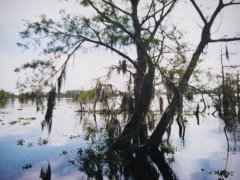
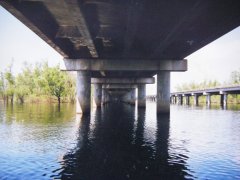
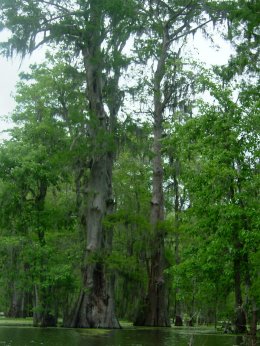
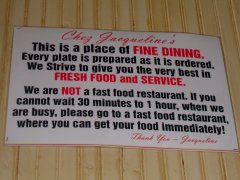
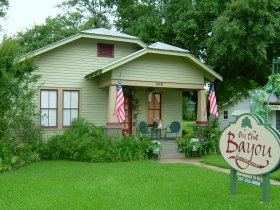
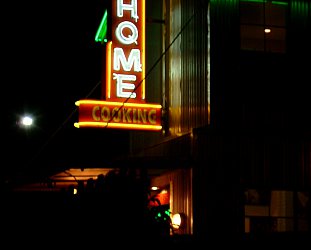
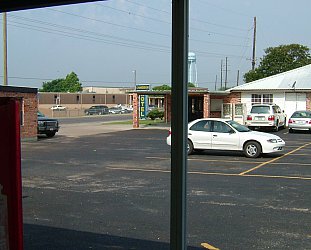
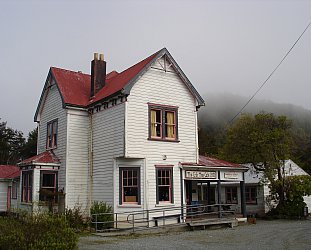
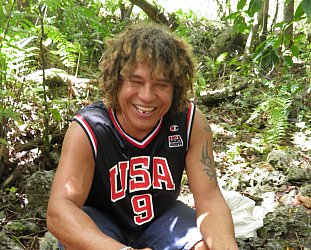
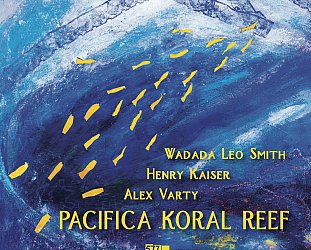
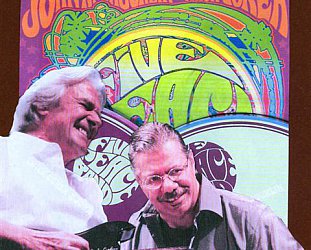
post a comment